-
Office No. 2202, Floor 22, Al Tabarak Tower, Al Mamzar, Sharjah, UAE


Study in Australia
How to Study in Australia: Top Universities, Courses, Scholarships 2025
Studying in Australia is a dream for many international students. Known for its world-class education system, multicultural society, and stunning landscapes, Australia offers a unique learning experience. In this guide, we break down everything you need to know about studying in Australia – from top universities and courses to scholarships and visa processes.
Overview of Education in Australia
Australia is home to some of the best universities in the world. With a strong focus on research, innovation, and practical learning, the Australian education system attracts over 600,000 international students every year. The degrees earned here are recognized globally and respected across various industries.
Australian universities typically follow a semester system, with intakes in February and July, and some universities offering a third intake in November. English is the medium of instruction, and many programs include work placements or internships to provide real-world experience.
The Australian Qualifications Framework (AQF) ensures that institutions meet high standards and offer a seamless transition between different levels of study – from diplomas to doctoral degrees.
Top Universities in Australia
Australia has several universities ranked among the top 100 globally. Here are some of the best choices for international students:
-
University of Melbourne
One of Australia’s oldest and most prestigious universities, known for its research and high academic standards. Offers strong programs in medicine, law, and business. -
Australian National University (ANU)
Located in Canberra, ANU is highly regarded for political science, international relations, and research-based postgraduate programs. -
University of Sydney
Offers a wide range of undergraduate and postgraduate programs. Known for excellence in engineering, law, health sciences, and arts. -
University of Queensland (UQ)
Based in Brisbane, UQ is a leader in environmental science, biotechnology, and agriculture. -
Monash University
With campuses across Australia and internationally, Monash is known for medicine, pharmacy, and business programs. -
University of New South Wales (UNSW)
Famous for its engineering and technology programs and strong ties with industries. -
University of Western Australia (UWA)
Located in Perth, UWA offers high-quality education in a peaceful environment, especially in mining, marine science, and economics.
Popular Courses and Fields of Study
Australia offers a wide range of academic programs catering to various career paths:
-
Engineering and Technology
Especially popular among Indian and Asian students, with majors in civil, mechanical, electrical, and mining engineering. -
Business and Management
Programs in MBA, international business, and finance are highly sought-after due to Australia's strong economy and global ties. -
Health and Medicine
Nursing, public health, dentistry, and MBBS programs are globally recognized, with clinical training opportunities in top hospitals. -
Information Technology
With Australia investing in smart technologies, IT programs in cybersecurity, data science, and AI are booming. -
Hospitality and Tourism
With its thriving tourism industry, Australia offers high-quality programs in hotel management, event planning, and travel operations. -
Environmental Science and Marine Biology
Given Australia's rich natural resources and coastlines, these fields offer exciting research and career opportunities. -
Law and Humanities
Australian law schools are known for their analytical and globally-relevant curriculum.
Admission Requirements
Before applying, it's important to meet the general admission criteria. Here are the key requirements for most universities:
-
Academic Transcripts
Certified copies of your previous education records. You’ll need a minimum academic percentage (generally 60-75%) for undergraduate programs and higher for postgraduate courses. -
English Proficiency Test
IELTS (score of 6.0–7.0) or TOEFL (score of 79–100) is mandatory for non-native speakers. Some universities accept PTE or Cambridge English as well. -
Statement of Purpose (SOP)
A personal essay outlining your career goals, why you chose the program, and why Australia. -
Letters of Recommendation (LOR)
Usually 2–3 academic or professional references, especially for postgraduate admissions. -
Entrance Exams
While most undergraduate programs don’t require standardized tests, some postgraduate programs (like MBA or Engineering) may require GMAT or GRE scores. -
Resume/CV
Required for postgraduate and research-based programs. -
Portfolio (for Design/Arts programs)
For creative courses, samples of your work are mandatory.
Application Deadlines
-
February Intake (Main): Apply between August to November
-
July Intake: Apply between January to March
-
November Intake (Limited programs): Apply by July–August
Student Visa Process
To study in Australia, you need a Subclass 500 Student Visa. Here’s the process:
-
Get Offer Letter
Receive an offer from a recognized Australian institution. -
Confirmation of Enrollment (CoE)
Once you accept the offer and pay the initial deposit, you’ll receive a CoE – required for visa application. -
Gather Documents
-
Valid Passport
-
CoE from your university
-
English test scores (IELTS/PTE)
-
GTE (Genuine Temporary Entrant) Statement
-
Financial documents showing proof of funds (~AUD 24,505/year)
-
OSHC (Overseas Student Health Cover)
-
-
Apply Online for Visa
Through the Australian immigration website. Visa fees: approx AUD 710 -
Attend Biometrics/Medical Exam
If required, at approved centers. -
Visa Approval
Processing time is usually 3–8 weeks.
Tuition Fees and Cost of Living
Tuition fees in Australia vary based on the course and university:
| Program | Average Annual Tuition (AUD) |
|---|---|
| Undergraduate Programs | AUD 20,000 – 45,000 |
| Postgraduate Programs | AUD 22,000 – 50,000 |
| MBBS/Medicine | AUD 55,000 – 75,000 |
| MBA | AUD 40,000 – 65,000 |
Cost of Living:
Living expenses vary depending on the city. On average, students need around AUD 20,000–27,000 per year for accommodation, food, transport, and other costs.
-
Sydney and Melbourne are more expensive.
-
Adelaide, Brisbane, and Perth offer a lower cost of living.
Scholarships for International Students
Australia offers numerous scholarships for deserving international students:
-
Australia Awards Scholarships
Funded by the government for students from developing countries. Covers full tuition, living allowance, airfare, and more. -
Destination Australia Program
Scholarships for students studying in regional Australia. -
University-Specific Scholarships
-
University of Melbourne International Scholarships
-
ANU Chancellor’s International Scholarship
-
Monash International Merit Scholarships
-
UQ Global Excellence Scholarship
-
-
Research Training Program (RTP)
For Masters/PhD students pursuing research degrees. -
Equity Scholarships
For students from disadvantaged backgrounds or with disabilities.

Partner University
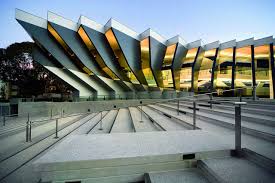
Australian National University
Canberra , Australia
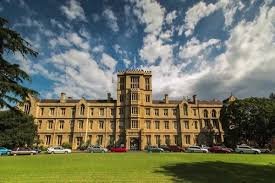
University of Melbourne
Parkville VIC 3010 , Australia
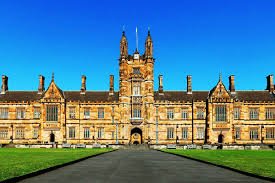
University-of-Sydney
Camperdown NSW 2050 , Australia

Monash University
Wellington Rd, Clayton VIC 3800 , Australia
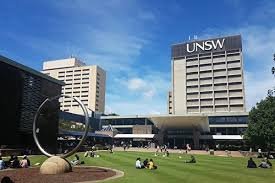
University of New South Wales (UNSW Sydney)
Sydney NSW 2033 , Australia
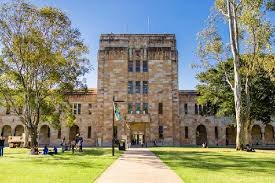
University of Queensland (UQ)
The Sir Llew Edwards Building (14) Cnr University Drive and Campbell Road. St Lucia QLD 4072 , Australia
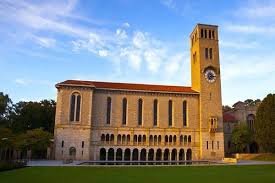
University of Western Australia (UWA)
35 Stirling Hwy, Crawley WA 6009 , Australia
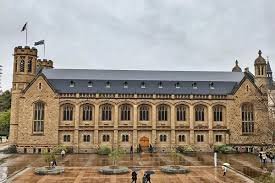
University of Adelaide
Adelaide SA 5005 , Australia

-
Email Address:
info@myflyboard.com
-
Phone Number
+91 9818024841
-
Our Address
Office No. 2202, Floor 22, Al Tabarak Tower,
Al Mamzar, Sharjah, UAE




